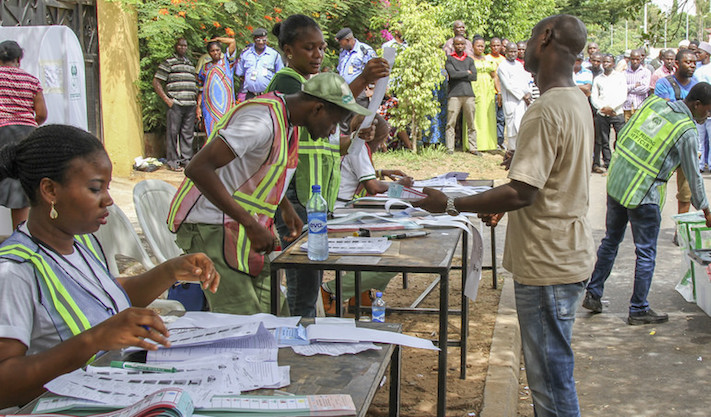A coalition of civil society partners on electoral reform has said the position of some governors on the electoral act amendment bill is “unpopular and narrow,” saying they cannot dictate to President Muhammadu Buhari.
The Civil Society Organisations (CSOs) on Sunday in Abuja said that since the President cannot dictate to the governors what they do with bills passed at the state level, it is also his prerogative to sign the electoral bill into law based on popular demand.
- No Father Christmas in politics, Ayu tells Nigerian youths
- PIA: Natural gas price rises by 50 cents for cement, other companies
They urged the governors not to obstruct the popular will of Nigerians on the electoral bill, urging them to concentrate on rebuilding their parties, ensuring internal party reforms, embark on digitisation of membership registration and dues payments.
The CSOs’ position was signed by the Executive Director, Adopt A Goal for Development Initiative, Ariyo-Dare Atoye, and endorsed by Centre for Liberty, Raising New Voices, Youth and Students Advocates for Development Initiative (YSAD), NESSACTION, The Nigerian Alliance, The Art and Civics Table and Speak Out Africa Initiative.
“The position of some of our governors on the new electoral act amendment bill is unpopular and narrow, and it conflicts with the public interest of Nigerians.
“Our governors should not serve as obstacles or constitute an impediment to the signing of the new electoral bill because it has substantially met the expectations of Nigerians.
“It is the prerogative of Mr President to sign the bill and make history, and it is not in the public interest for the governors to ask him not to sign it.
“The President has a glorious opportunity to take a popular action, etch his name in gold and side with the people by signing the bill into law.
“The President does not dictate to the governors when they sign bills into law at the state level; they should therefore not push him to do what will bring him into public opprobrium and create disenchantment for the electoral process.
“We are also concerned that the real motive behind this resistance from some governors may not be the issue of a single mode of primary retained in the bill, but an opportunity to kill the entire legislation over the fear of losing elections,” they said.
They also said that since INEC has shown the determination to conduct credible elections with technology addition, some politicians may not be comfortable with electronic aided transparency.

 Join Daily Trust WhatsApp Community For Quick Access To News and Happenings Around You.
Join Daily Trust WhatsApp Community For Quick Access To News and Happenings Around You.


